- Home
- neetha Napew
Planet Pirates Omnibus Page 4
Planet Pirates Omnibus Read online
Page 4
“We’d heard a shipment might be coming into a neighbouring system, so we had a fluxnet in place. You don’t need to know how that works, only it can jerk a ship out of hyperspace when it works right. When it works wrong, there’s nothing to pick up. Anyway, it worked, and there your ship was, and there we were, ready to trail and take it. Which we did. The other slaves - and there’s two from Myriad, by the way - are being sent back to Sector HQ, where they’ll go through Fleet questioning and court procedures to re-establish their identities. They’re innocent parties; all we do is make sure they haven’t been planted with dangerous hidden personalities. That’s happened before with freed slaves; one of them had been trained as an assassin while under drugs. Freed, and back at school, he went berserk and killed fourteen people before he could be subdued.” He shook his head, then turned to her.
“You, though. You’re our clue to what’s really happened, and you know where the slave depot is. You’ve told us what you know - or what you think you know - but I’m not sure your Fleet friend put all he had to say in one implanted message. If you were willing to come along when we go -“
Sass pushed herself upright. “You’re going there? Now?”
“Well, not this instant. But soon - in a few shipdays, at the most. The thing is, you’re a civilian, and you’re underage. I have no right to ask you, and no right to take you. But it would be a help.”
Tears filled her eyes; it was too much too soon. She struggled to regain the discipline Abe had taught her, slowing her breathing, and steadying against the strain. The officer watched her, his expression shifting from concern through puzzlement to something she could not define. “I ... I want to go,” she said. “If ... if Abe -“
“If Abe is still alive, we’ll find him. Never fear. And now you, young lady, need more sleep.”
There had been another implanted message, one that came out under the expert probing of the ship’s medical team. This one, Sass realised, gave details of the inner defences, descriptions of the little planet’s surface, and the name of the trading combines which dealt in the slaves . . . including the one which had purchased and trained her. She came from that session shaken and pale, regaining her normal energy only after another long sleep and two solid meals. For the rest of the journey, she had nothing to do but wait, a waiting made more bearable by the friendly crew-women who showered her with attention and minor luxuries - real enough for someone who’d been a slave for years. Although the captain would not let her join the landing party, when the cruiser had cleared the skies and sent the marines down, she was on hand when Abe returned to the Fleet. Scarred and battered as he was, wearing the ragged slave tunic, and carrying nothing but his pride, he marched from the shuttle into the docking bay as if on parade. The captain had come to the docking bay himself. Sass hung back, breathless with awe and delight, as they went through the old ritual. When it was over, and Abe came to her, she was suddenly shy of him, half-afraid to touch him. But he hugged her close.
“I’m so proud of you, Sass!” He pushed her away, then hugged her again.
“I didn’t do much,” she began, but he snorted.
“Didn’t do much! Well, if that’s the way you want to tell the story, it’s not mine. Come on, girl - soon’s I’ve changed into decent clothes -“ He looked around, to meet the grins of the others in the bay . . . kind grins, Sass noticed.
One of the men beckoned to him, and he followed. Sass stared after him. He belonged here; she could tell that. Where would she belong? She thought of the captain’s comments on the other freed slaves . . . Fleet questioning and court procedures . . . hardly an inviting prospect.
“Don’t worry,” one of the men said to her. “There’s enough wealth here to give every one of you a new start - and you most of all, being as you found the place.”
Still she worried, waiting for Abe to reappear, and when he did, clad in the crisp uniform and stripes of his rank, she was even more worried, A new start, somewhere else, with strangers . . . she knew, without asking for details, that none of her family were left.
“Don’t worry,” he echoed the other man’s comment. “You’re not going to be lost in the system somewhere. You’re my girl, and I’m Fleet, and it’s going to be fine.”
Chapter Three
By the time Sassinak arrived at Regg with Abe, she was as ready as he to praise the Fleet, and glad to think of herself as almost a Fleet dependent. The only thing better than that was to be Fleet herself. Which, she soon found, was exactly what Abe planned for her.
“You’ve got the brains,” he said soberly, “to make the Academy list and be a Fleet officer. And more than the brains, the guts. You weren’t the first I tried to help, Sass, but you were one of only three who didn’t fall apart when the time came to leave. And both of those were killed.”
“But how?” Sass wanted nothing more than to enter the gleaming white arches of the Academy gates . . . but that required recommendations from FSP representatives. How would an orphan from a plundered colony convince someone to recommend her?
“First there’s the Fleet prep school. If I formally adopt you, then you’re eligible, as the daughter of a Fleet veteran - and no, it doesn’t matter that I’m not an officer. Fleet’s Fleet.”
“But you’re - “ Sass reddened. Abe had been retired, over his protests; his gimpy arm was past treatment, and wouldn’t pass the Medical Board. He had argued, pled, and finally come back to their assigned quarters glum as she’d never seen him before.
“Retired, but still Fleet. Oh, Cousins take it, I knew they’d do it. I knew when the arm didn’t heal straight - after six months or so, it’s too late. But I thought maybe I could Kipling them into it.”
“Kipling?”
“Kipling. Wrote half the songs the Fleet sings, and probably most of the rest. Service slang is, if you’re sweet - talking someone into something, ‘specially if it’s sort of sentimental, that’s Kipling. Where you came from, they probably said ‘Irish them into it,’ and I’ll bet you don’t know where that came from. But don’t worry - I can’t be active duty, but disabled vets - “ His expression made it clear that he refused to think of himself as disabled. “ - we old crips can usually get work in one of the bureaus.” Sass asked again about the prep school.
“Three or four years there, ‘til you pass the exams - and I don’t doubt you will. Don’t worry about the letters you need. You impressed the captain more than a little, and he’s related to half the FSP reps in this sector.”
From there, things went smoothly: the adoption, the entry into the prep school. Although the other students were her age, none had her experience, and they were still young enough to show their awe. Sass found herself ahead of schedule in her math classes, thanks to the slave tech training, while Abe’s lessons in physical discipline and concentration helped her regain lost ground in the social sciences. She felt out of place at first in the social life of school - she could not regain the carefree camaraderie of younger years - but she looked forward to the Academy with such singleminded ambition that everyone soon considered her another Academy-bound grind.
Abe’s apartment, in a large block of such buildings, was unlike any place Sass had ever lived. Her parents’ apartment on Myriad had been a standard prefab, the same floor plan as every other apartment in the colony. Large families had had two or three, as needed, with doors knocked through adjoining walls. None of the living quarters were more than one story high, and few of the other buildings. At the slaver depot, all the buildings were even cheaper prefabs, big ugly buildings designed to hold the maximum cubage. There she had slept in a windowless barracks, in a rack of bunks.
Abe had a second-floor corner apartment, with a bedroom for each of them, a living room, study, and small kitchen. From her room, Sass looked into a central courtyard planted with flowers and one small tree with drooping leaves. From the living room she could see across a wide street to a similar building across from them. It felt amazingly spacious and light; she spent hour
s, at first, watching people in the street below, or looking out across the city. For their apartment, like most, stood on one of the low hills that faced the harbour.
Regg itself was a terraformed planet, settled first by the usual colonists, in their case agricultural specialists, and then chosen as Fleet Headquarters because of its position in human-dominated space. Here in its central city. Fleet was the dominant force. Abe took Sassinak touring: to the big blocky buildings of Headquarters itself, all sheathed in white marble, to the riverside parks that ended in the great natural harbour, a wide almost circular bay of deep blue water edged in gray cliffs on the east and west, opening past a small, rocky island to the greater sea beyond. By careful design, the river mouth itself had been left clear, but Sass saw both the Fleet and civilian ports set back on either side. Although FSP regulations forbade the eating of meat, fishing was still done on many human-settled worlds, whose adherence to the code was less than perfect. Ostensibly the excuse was that the code should apply only to warmbloods and intelligent (not just sentient) aquatic coldbloods such as the Wefts or Ssli. Sass knew that many of the civilian locals ate fish, though it was never served openly in even the worst dockside joints. The fish, originally of Old Earth origin, had been stocked in Regg’s ocean centuries before.
Besides the formal Headquarters complex, there were the associated office buildings, computer centers, technology and research centers . . . each in a landscaped setting, for Regg was still, after all these years, uncrowded.
“Fleet people do retire here,” Abe said, “but they mostly homestead inland, upriver. Maybe someday we can do a river cruise during your holidays, see some of the estates. I’ve got friends up in the mountains, too.”
But the city was exciting enough for a girl reared in a small mining colony town. She realised how silly it had been for the Myriadians to call their one-story collection of prefabs The City. Here government buildings soared ten or twelve stories, offering stunning views of the surrounding country from their windswept observation platforms atop. Busy shops crowded with merchandise from all over the known worlds, streets bustling from dawn until long after dark. Festivals to celebrate seasons and historical figures, theater and music and art . . . Sass felt drunk on it, for weeks. This was the real world she had dreamed of, on Myriad: this colorful, crowded city connected by Fleet to everywhere else, ships coming and going every day. Although the spaceport was behind the nearest range of hills, protecting the city from the noise, Sass loved to watch the shuttles lifting above forested slopes into an open sky.
In the meantime, she’d had a chance to meet some of the other survivors of Myriad’s raid. Caris, now grim and wary, all the playfulness Sass remembered worn away by her captivity. She had found no one like Abe to give her help and hope, and in those few years aged into a bitter older woman.
“I just want a chance to work,” she said. “They say I can go to school.” Her voice was flat, barely above a whisper, the voice of a slave afraid of discovery. “You could come here,” said Sass, half-hoping Cans would agree. Much as she loved Abe, she missed having a close girlfriend, and her room was big enough for two. And Caris had known her all her life. They could talk about anything; they always had. Her own warmth could bring Caris back to girlhood, rekindle her hopes. But Caris pulled back, refusing Sass’s touch.
“No. I don’t - Sass, we were friends, and we were happy, and someday maybe I can stand to remember that. Right now I look at you and see - “ Her voice broke and she turned away.
“Caris, please!” Sass grabbed her shoulders, but Caris flinched and pulled back.
“It’s all over, Sass! I can’t - I can’t be anyone’s friend now. There’s nothing left ... if I can just have a place to work in peace, alone ...”
Sass was crying then, too. “Caris, you’re all I have - “
“You don’t have me. I’m not here.” And with that she ran out of the room. Sass learned later that she’d gone back into the hospital, for more treatment. Later, she went off-planet without even telling Sass, letting her find out from the hospital records that her friend had left forever. For this grief, Abe insisted that work was the only cure - and revenge, someday, against whatever interests lay behind the slave trade. Sass threw herself into her classwork . . . and by the time the Academy Open Examinations came around, she’d worked off the visible remnants of her grief. She passed those in the top five percent, to Abe’s delight. His scarred face creased into a grin as he took her to buy the required gear.
“I knew you could do it, Sass. I knew all along. You just remember what I told you, and in a few years I’ll be cheering when you graduate.”
But he would not walk her to the great arch that guarded the Academy entrance. He went off to work that morning, as he did every day (she never knew which of the semi-military bureaucracies had found a place for him; he never volunteered the information), leaving her to stare nervously into the mirror, twitching one errant strand of hair into place, until she had to walk fast or risk being late. She made her entrance appointment with time to spare, only to run into a marauding senior on her first trip through the Front Quad. She had carefully memorised the little booklet she’d been sent, and started to answer his challenge in the way it had instructed.
“Sir, Cadet Sassinak, reporting - “ Her voice faltered. The cadet officer she had saluted had crossed his eyes and put his tongue out; he had his hands fanned out by his ears. As quickly, his face returned to normal, and his hands to his sides, but the smile on that face was grim.
“Rockhead, didn’t anyone ever teach you how to report to a senior?” His voice attempted the cold arrogance of the pirate raiders, and came remarkably close. Sass realised she’d been tricked, fought down the responsive anger, and managed an equable tone in return. Abe hadn’t told her they called the entering cadets “rockhead.”
“Sir, yes, sir.”
“Well, then . . . get on with it.”
“Sir, Cadet Sassinak, reporting ...” This time both eyes slewed outward, his mouth puckered as if he’d bitten a gari fruit, and he scratched vigorously at both armpits. But she wasn’t fooled twice, and managed to get through the formal procedure without changing tone or expression, ending with a crisp “... sir!”
“Sloppy, slow, and entirely too smug,” was the senior cadet’s comment. “You’re that petty officer’s orphan tagalong, aren’t you?”
Sass felt her ears burning, started to nod with clenched teeth, and then remembered that she had to answer aloud. “Sir, yes, sir.”
“Hmph. Sorry sort of recommendation, letting himself get captured and slaved all those years. Not much like Fleet - “ He stopped as Sass opened her mouth, and cocked his head. “Something to say, rockhead? Someone give you permission to speak?”
She didn’t wait. “Sir, Abe is worth four of you, sir”
“That’s not the point, rockhead. The point is that you - “ He tapped her shoulder. “You have to learn how to behave, and I don’t think anything in your background’s taught you how.” Sass stared at him, back in control, furious with herself for taking the bait. “On the other hand, you’re loyal. That’s something. Not much, but something.” He dismissed her, and she set off to find her assigned quarters, careful not to gawk around.
For reasons known only to the architects, the main buildings at the Academy had been constructed in a mix of antique styles, great gray blocks of stone that looked like pictures of ancient buildings on Old Earth. Towers, arches, covered walkways, intricate carvings of ships and battles and sea monsters around windows and doorways, enclosed courtyards - paved in smooth slabs of stone. Six of these patriarchal buildings surrounded the Main Quad Parade: Themistocles, Drake, Nelson, Farragut, Velasquez, and the Chapel. Here, where the boldest street urchins could peer through the entrance gates to watch, cadets formed up many times a day to march to class, to mess, to almost every activity. Sass soon learned that the darker gray paving stones, which marked out open squares against a pale background, were slippery in the ra
in. She learned just where a flash of reflected sunlight from an open window might blind a cadet long enough to blunder into someone else. That meant a mark off, and she wanted no marks off.
Through the great arching salleyport of Velasquez, wide enough for a cadet platoon, were the cadet barracks, these named for the famous dead of Fleet battles. Varrin Hall, Benis, Tarrant, Suige. By the time they had been there a half-year, cadets knew those stories, and many others. Sass, on the third deck of Suige Hall, could recite from memory the entire passage in the history. Other cadets complained (quietly) about their quarters, but Sass had spent years as Abe’s ward. She had never been encouraged to spread her personality around her quarters, “to acquire bad habits” as Abe put it, although he admitted that Fleet officers, once they were up in rank, could and did decorate and personalise their space. But the regulation bunk with its prescribed covers folded just so, the narrow locker for the required uniforms (and nothing else), the single flat box for personal items, the single desk with its computer terminal and straight-backed chair - that was enough for her. She didn’t mind sharing, or taking the top bunk, which made her popular with a series of roomies. She felt the neat, clean little cubicles were perfect for someone whose main interest lay elsewhere, and willingly did her share of the floor-polishing and dusting that daily inspections required.
She had actually expected neutral or monotone interiors, but the passages were tinted to copy the color-code used on all Fleet vessels. By the time the cadets graduated, this system would be natural, and they would never have to wonder which deck, or which end of a deck, they were on. Main or Command Deck, anywhere, had white above gray, for instance, and Troop Deck was always green.

 Zero City
Zero City Freedom Omnibus
Freedom Omnibus ACrucible of Time
ACrucible of Time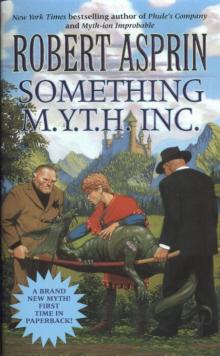 Something MYTH Inc
Something MYTH Inc Forbidden Land
Forbidden Land Corridor of Storms
Corridor of Storms The Peytabee Omnibus
The Peytabee Omnibus Beyond the Sea of Ice
Beyond the Sea of Ice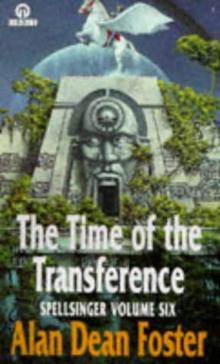 The Time Of The Transferance
The Time Of The Transferance EarthBlood
EarthBlood The Lexal Affair
The Lexal Affair The Web
The Web Slave Ship
Slave Ship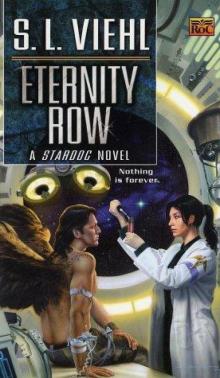 Eternity Row
Eternity Row Planet Pirates Omnibus
Planet Pirates Omnibus Aztec
Aztec The Awakening
The Awakening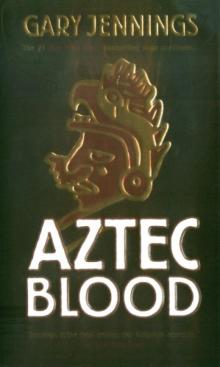 Aztec Blood
Aztec Blood The Mystery of Ireta Omnibus
The Mystery of Ireta Omnibus Aztec Autumn
Aztec Autumn The Savage Horde
The Savage Horde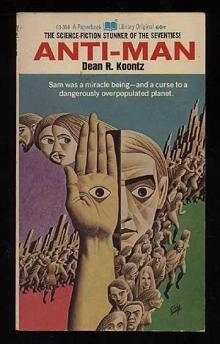 Anti - Man
Anti - Man Deep Trek
Deep Trek Starfall
Starfall The Paths Of The Perambulator
The Paths Of The Perambulator Fool's Fate
Fool's Fate Jinian Stareye
Jinian Stareye Endurance
Endurance Spellsinger
Spellsinger Hybrids
Hybrids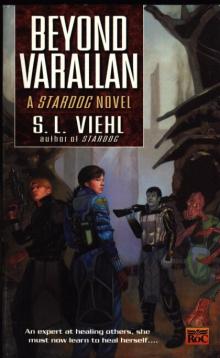 Beyond Varallan
Beyond Varallan Doona Trilogy Omnibus
Doona Trilogy Omnibus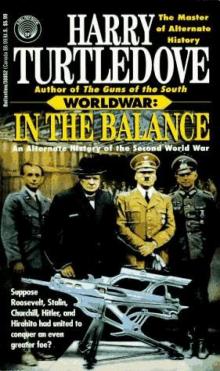 In th Balance
In th Balance Planerbound
Planerbound The Nightmare begins
The Nightmare begins Humans
Humans Son Of Spellsinger
Son Of Spellsinger